Category: Terminal Illness
Articles about terminal illnesses that one typically sees and cares for on hospice.
Articles about terminal illnesses that one typically sees and cares for on hospice.

This article will give you more knowledge, confidence, and comfort in dealing with dementia. You will also learn how to connect with people who share your experiences and challenges and can offer you emotional, practical, and informational support. You will realize that you are not alone and can make a difference in your loved one’s life.

Shielding children from death deprives them of understanding this natural part of life, leading to emotional and psychological consequences. This article explores why exposing children to the dying process is essential for their development and highlights the role of hospice care in supporting families during this time.
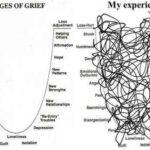
Discover how to navigate the complex emotions of end-of-life care, particularly anger. This comprehensive guide offers caregivers practical strategies for understanding, managing, and coping with personality changes in terminally ill loved ones.

Explore why side effects from medications can emerge after initial use and understand the critical need for vigilant monitoring and regular medication reconciliation to ensure patient safety and efficacy.

Understanding vision changes in dementia is vital for caregivers. Learn how dementia affects vision and find practical tips to support your loved one, ensuring their comfort and safety.

In this episode of Hospice Explained, host Marie Betcher, RN, interviews Nurse Peter Abraham. Peter shares his extensive experience in cardiac telemetry, skilled nursing, and rural home hospice care. They discuss the significance of early hospice enrollment, the challenges of caring for dementia and Parkinson's patients, and the impactful personal stories from Peter's career. Special focus is given to the educational resources on Peter's website, Compassion Crossing, which aims to support families, caregivers, and new hospice nurses. Peter emphasizes the importance of compassion and understanding in hospice care and reflects on how his faith informs his practice.

Understanding Dementia with Lewy Bodies (DLB) and Parkinson's disease (PD) is crucial for providing the best care. This guide helps families know what to expect and how to support their loved ones through these challenging conditions.

Hospice nurses are crucial in comforting and supporting patients nearing death and their families. This article explores what to expect from hospice care, focusing on patient assessments, educational discussions, and addressing common family concerns.

Navigate the challenges of Korsakoff Dementia with our comprehensive guide. Learn to recognize symptoms, understand stages, and provide compassionate care for your loved one.

Discover how oral ketamine is emerging as a game-changer in palliative care, offering rapid relief for severe depression, anxiety, and emotional distress. This comprehensive guide explores its potential benefits, administration methods, and important considerations for patients and healthcare providers.

RUSH Medical Center's Caring for Caregivers (C4C) program offers vital support to those caring for adults 60 and older at home. Learn about the program's comprehensive approach, including skill-building sessions, planning assistance, and care-team coordination. Discover how C4C makes a difference in caregivers' lives and improves patient outcomes.
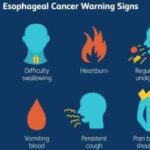
A compassionate guide for families navigating esophageal cancer. Understand its types, risk factors, symptoms, diagnosis, treatment options, and ways to provide care and support.
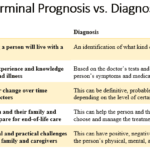
Learn the difference between a terminal prognosis and a diagnosis, and get practical tips and resources to help you and your loved one navigate this challenging time.
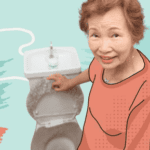
Understanding bowel movements in terminally ill patients is crucial for their comfort and dignity. This guide offers practical tips for caregivers and hospice nurses to manage constipation, diarrhea, and other bowel issues, ensuring patients' better quality of life.
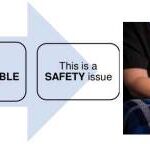
Discover how to use the CUS tool and Caring Feedback Model to advocate for your loved one's health. This guide empowers caregivers to communicate effectively with healthcare providers, ensuring their concerns are heard and addressed.
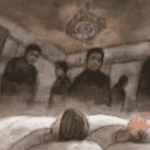
Explore comprehensive approaches to managing hallucinations in loved ones with dementia. This article covers pharmacological methods, focusing on Seroquel and non-drug strategies such as Naomi Feil's validation therapy. Learn how to validate feelings, de-escalate fear, and improve the quality of life for those experiencing cognitive impairment.
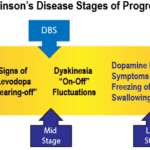
Identifying end-stage Parkinson's for hospice admission can be challenging. This article explores key criteria, including decline in function, weight loss, swallowing difficulties, and mobility issues. Learn how hospice professionals assess patients and utilize guidelines to ensure appropriate and timely hospice care for those with advanced Parkinson's disease.
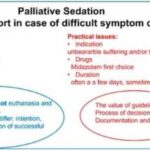
This guide covers the essentials of palliative sedation for hospice patients, including ethical dilemmas, timing, recommended medications, and monitoring effectiveness, ensuring comfort during the end-of-life journey.

Navigating interstate hospice transfers can be complex. This guide explores the process, challenges, and considerations for patients and families. Learn about Medicare regulations, coordination between hospice agencies, and how to ensure continuity of care when moving across state lines during end-of-life care.
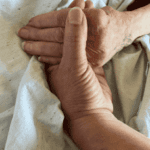
Learn how to communicate effectively with healthcare professionals when caring for a loved one with a terminal illness. Improve communication, advocacy, and coping skills to ensure your loved one receives the best care possible.

Managing bowel problems in terminally ill patients is crucial for their comfort and dignity. This guide offers practical tips for caregivers and hospice nurses to address constipation, diarrhea, bowel obstruction, and ascites, ensuring patients' better quality of life.

Dementia is a complex condition affecting millions worldwide. Diagnosing dementia requires the expertise of medical professionals specializing in cognitive disorders. By guiding families and caregivers through the diagnostic process, you can empower them. In this article, we'll explore the steps to find the right specialist for a dementia diagnosis and how families can prepare for the crucial doctor visit.
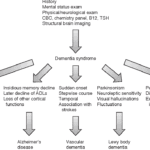
Getting a formal diagnosis of dementia is essential for understanding the condition, accessing appropriate treatments and support services, and ensuring the best possible care. This comprehensive guide explores the importance of a specific diagnosis in predicting patient needs for comfort and quality of life, as different types of dementia require distinct care approaches. Avoid the risks of a generic diagnosis and empower yourself with knowledge.

Caregivers can find it challenging to ensure dementia patients wear their CPAPs overnight. This article offers practical tips and strategies to help caregivers ensure comfortable and uninterrupted CPAP use for their loved ones.